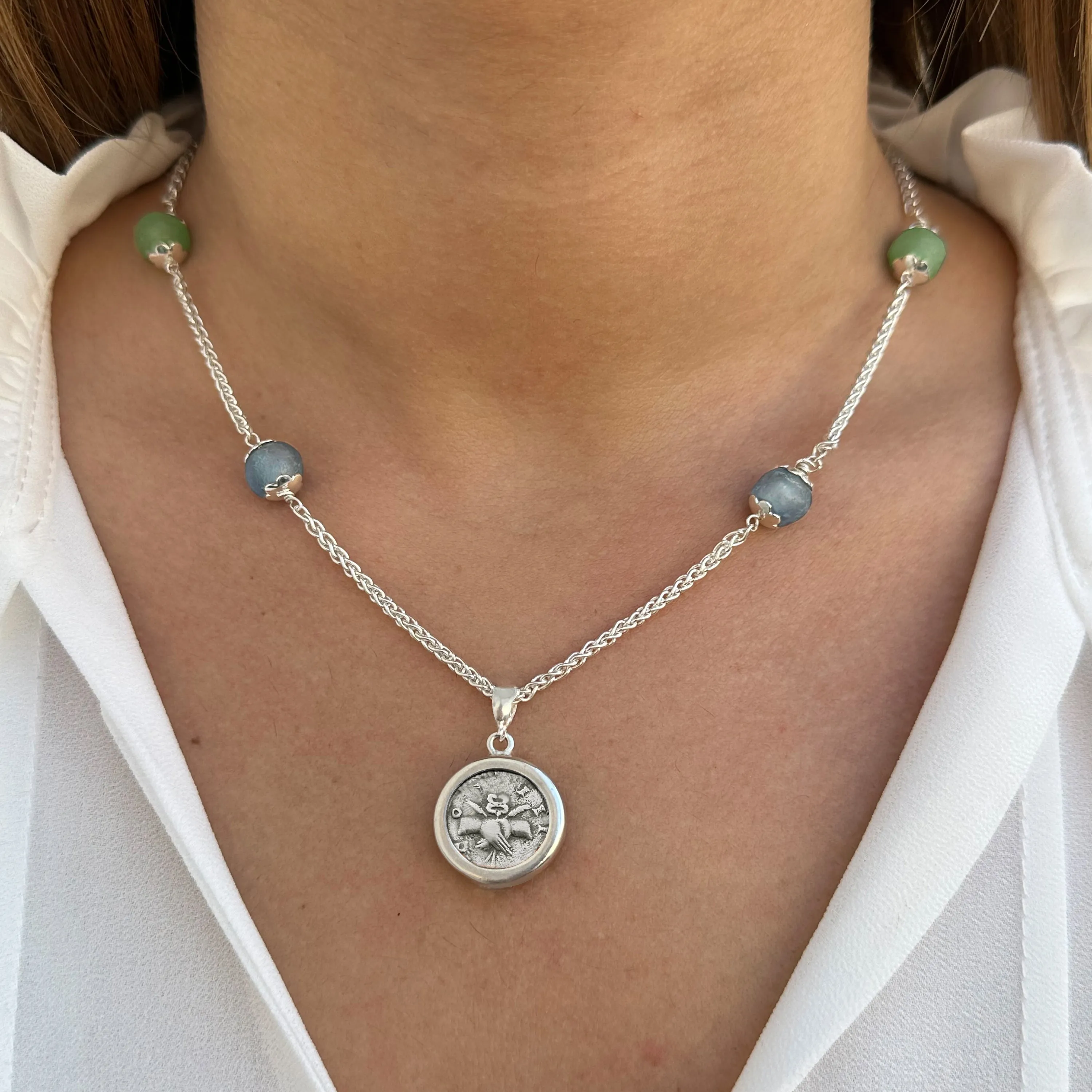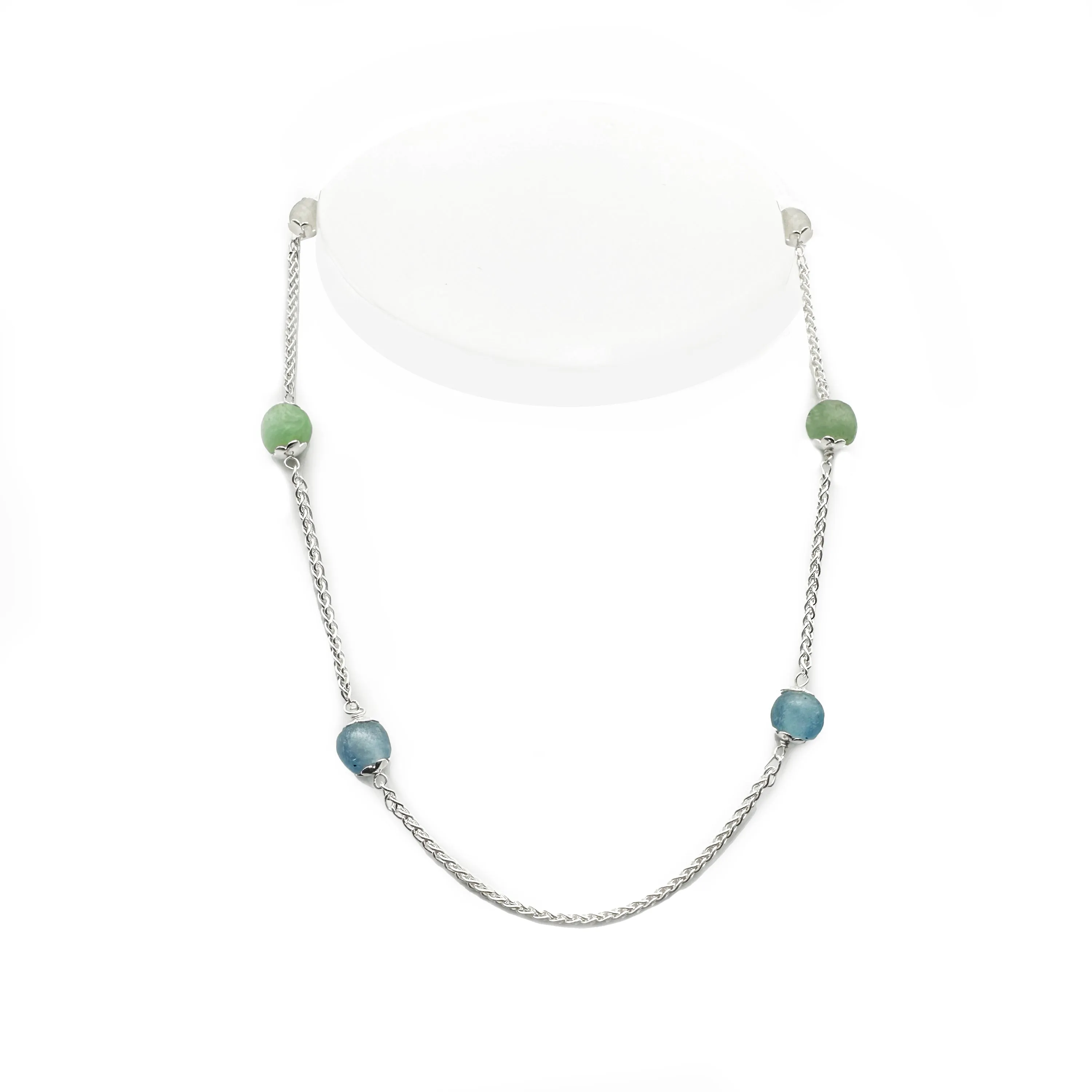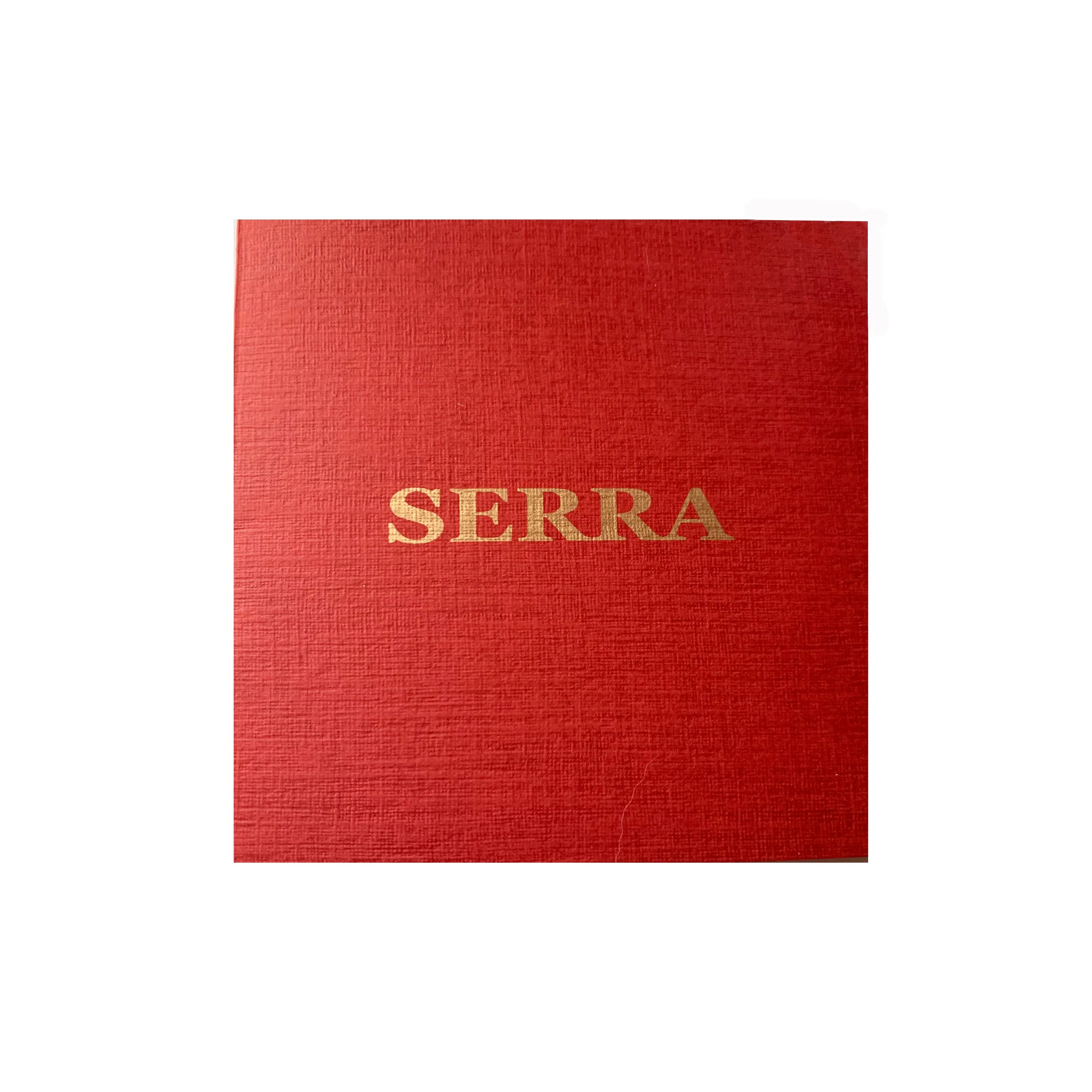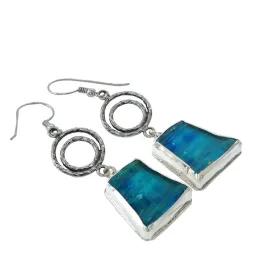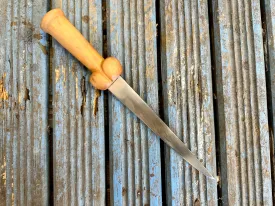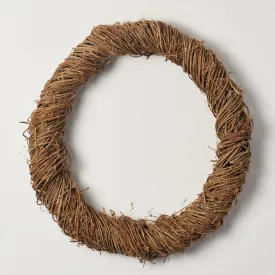This exquisite necklace is meticulously handcrafted using a silver chain adorned with captivating Roman glass beads. One of the highlights is a pendant featuring a Roman coin at its center, cleverly attached with a removable hook.
The origins of Roman Glass can be traced back to the early 1st century AD when it was skillfully produced using ancient Hellenistic glassmaking techniques. During this period, the most common glass items crafted were vases and vessels designed for holding water.
In the later part of the 1st century, advancements in glassblowing techniques led to the creation of more intricate glass artifacts. The introduction of this fast and versatile method revolutionized the Roman Glass industry, resulting in the production and trade of various glass tools, pottery, decorations, and other items in markets across the Roman Empire and beyond. The peak of Roman Glass production occurred during the 2nd century AD when it was utilized not only for functional purposes but also as colored glass for windows.
Today, fragments of Roman Glass, which could have originated from necklaces, jars, goblets, or vases, are repurposed as beads. These fragments, now transformed into jewelry, have survived centuries and continue to captivate us with their distinctive appearance and remarkable history.
The fall of the Roman Empire in 476 AD marked a significant turning point. Since then, archaeological endeavors have unearthed a wealth of glass artifacts, making them accessible to the public, often in the form of stunning jewelry. Roman glass has truly endured the test of time, embarking on a fascinating journey from its humble beginnings as glassware to becoming cherished pieces of jewelry.




